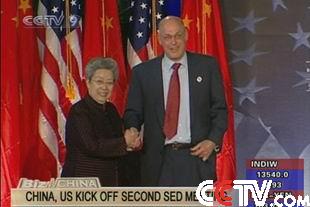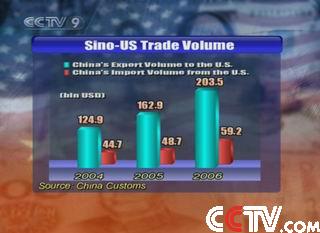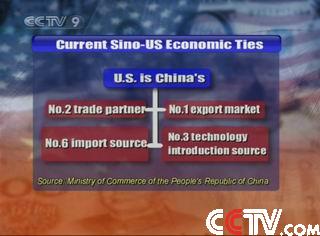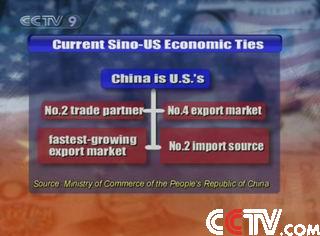Source: CCTV.com
05-23-2007 10:48
Special Report: 2nd meeting of SED
 |
In her opening remarks to the US-China Strategic Economic Dialogue, Chinese Vice Premier Wu Yi cautioned the United States against politicizing outstanding economic and trade issues.
"We should conduct meticulous and detailed work and maximize the reciprocity of our bilateral economic and trade ties. Problems and contradictions emerging in the development of China-US economic and trade relations should be dealt with calmly and handled properly. Economic and trade issues can only be addressed according to economic law. Politicizing economic and trade issues is absolutely unacceptable," says Wu Yi, Chinese Vice Premier.
Wu Yi says China will take effective measures together with the US side to address bilateral trade imbalances. These measures include increasing imports from the United States by China and raising US exports to China, especially the exports of civilian high-tech products and technologies.
Echoing Wu, US Treasury Secretary Henry Paulson says the two sides must maintain a partnership to face challenges of trade globalization.
"The United States is supportive of a stable and prosperous China. We are not afraid of competition. We welcome it, because competition makes us stronger. It is therefore in our interest to support China's continuing efforts to open up its economy. As I've said before, our policy disagreement are not about the direction of change, but about the pace of change," says Henry Paulson, US treasury secretary.
The US delegation includes top officials from 11 Cabinet-level agencies, as well as Federal Reserve Chairman Ben Bernanke. The Chinese delegation includes 14 ministers and the head of China's central bank, Zhou Xiaochuan.
They discussed points including rebalancing bilateral trade, opening service market to each other, facilitating investment and clean-energy cooperation.
Breakthroughs at this meeting are expected in the area of cutting tariffs on sales of American energy technology products and services in China. Another area is increasing US airline passenger and cargo flights to China.
But more challenging issues, such as the U.S. preference for China to speed up the pace of currency reform, are expected to take more time and require more dialogue and patience on both sides. Meanwhile, more debate is anticipated over how soon Chinese financial service companies will further open up to US investment.
 |
 |
 |
Editor:Chen Ge
